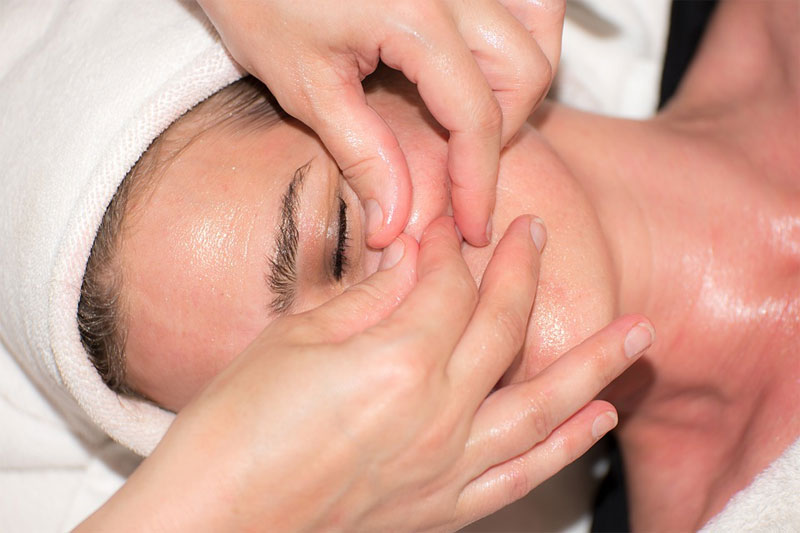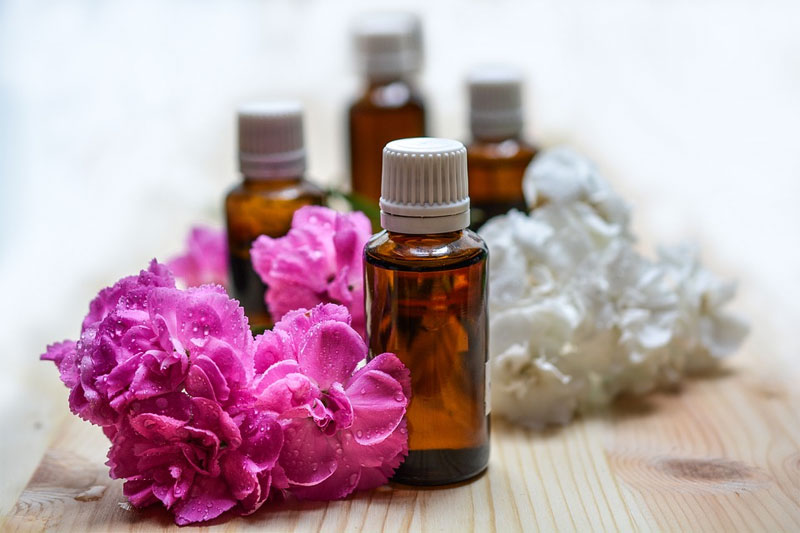
Most people experience acne in their youth, but youth isn’t a requirement for getting acne. Many adults get acne outbreaks throughout their lives, even into the 50s and 60s. No one is typically exempt from the possibility of acquiring acne, whether you’re male or female. When it happens, you want to be able to get rid of it fast. But, like any other treatment that you may choose to go for, acne treatment can also be a matter of trial and error.
Fortunately, you can battle acne naturally by using essential oils instead of chemicals with unpronounceable names.
The coming in of the popularity of essential oils has only shown that it is, in fact, effective for all the purposes that it promises to serve. This is good news for those of you that are seeking more natural means to battle your acne. That way, you don’t have to lather your skin with too many chemicals that may only aggravate your condition.
That said, read through below to learn more about acne, and the top essential oils that you can use to treat it.
Causes of Acne
One of the main causes of acne, especially in teenagers, is hormones, specifically the androgen hormone. As boys and girls enter puberty, their bodies start producing more androgen, which gives males their traits and females their reproductive abilities.
When the body produces more androgen, it also begins to produce more sebum, which is an oily substance from the body’s sebaceous glands. Excessive oil production is one of the main causes of acne.
There are four other causes as well: cosmetic ingredients that cause acne, bacteria, hair follicles clogged with dead skin cells and oil, and stress. Stress is one of the common triggers for acne in adults, as are the medications they are taking, or propionibacterium, which is the bacteria that causes acne.
Each person has their cause and risk factors for acne. For you to uncover that cause, it’s best that you consult with the experts in the field of dermatology in Orlando FL.
How to Use Essential Oils for Your Face
Using essential oils to treat acne may be something you haven’t heard about. However, it is a natural way of treating your breakouts that won’t exacerbate the problem, like the use of harsh chemicals.
Essential oils contain anti-inflammatory, anti-microbial, and antioxidant properties of the plants they are from. However, don’t use essential oils straight from the vial onto your face. Using pure oil is likely to cause allergic reactions, making a breakout worse.
Instead, mix the oil to a carrier oil like jojoba or rosehip oil. Then, test the oil blend on another patch of skin before using it on your face in case you’re unknowingly allergic to any of the plants. Use a tiny amount of oil on the inside of your arm or under your jaw.
Also, never use citrus-based oils on your skin, like orange, lemon, or lime. Essential oils like these cause sensitivity to light that can result in a rash, blistering, or swelling when exposed to the UV rays of the sun. This effect is known as phytophotodermatitis or margarita dermatitis.
Which Carrier Oils to Use for Acne
While there are approximately twenty oils that can act as a carrier oil, but two of the best ones for acne are jojoba and rosehip oils. Jojoba oil has many properties that make it perfect for acne skin treatment.
Jojoba is antibacterial, it controls sebum production, and it’s so similar to sebum the body can’t tell the difference. It helps reduce redness, moisturizes the skin, and has anti-inflammatory agents too. As an added bonus, it helps reduce fine lines and wrinkles.
Rosehip oil is also a great carrier oil for treating acne. It comes from the seeds of the rosehip fruit that comes from Chile and other parts of the world. It moisturizes the skin, is a strong antioxidant that neutralizes body-damaging stress, and it also has anti-inflammatory properties.

Diluting Essential Oils with Carrier Oils
You don’t need to use large amounts of essential oil to get the effect that you want. When you measure oils, you do so in terms of drops. With carrier oils, you measure them in teaspoons. First, determine the dilution that you want, then mix the proper amount of the oils.
For instance, if you want a two percent dilution, you would add six drops of the essential oil to two teaspoons of carrier oil. If you want a three-percent dilution, then it would be nine drops of the essential oil to two teaspoons of carrier oil.
Essential Oils for Treating Acne
With your carrier oil ready, here are some of the essential oils that help with acne. They use their properties to dry acne breakouts and make them disappear. Take note that you don’t have to use all these essential oils at once. You can merely choose which you prefer, or that which is also available to you.
1. Tea Tree Oil
Tea tree oil has both antiseptic and anti-inflammatory properties that are great for fighting acne. This oil kills the bacteria that cause acne breakouts and it helps to dry pimples so that they vanish. Only use a little of the oil on pimples and add a moisturizer to prevent dry skin.
2. Rosemary Oil
Reduce oil production by using Rosemary oil on your skin. With its anti-inflammatory properties, it will clear up the redness and puffiness on your skin from breakouts too. If you want clearer skin, this oil can help you.
3. Frankincense Oil
If you have sensitive skin, then this is a good essential oil to try. Frankincense is gentle on all types of skin, even very dry skin. It also helps heal any scars that you may have from popping pimples.
4. Oregano Oil
If you have a breakout that you want to get rid of, oregano oil is a good spot treatment for acne. Along with a carrier oil, dab it on the spots already showing on your skin. Oregano oil has antiseptic and antibacterial properties to help dry out acne.
5. Peppermint Oil
The menthol in peppermint oil is useful for unclogging skin pores. The cause of blackheads is clogged pores that turn brown or black due to oxygen exposure. Peppermint oil also has anti-inflammatory effects so that it can reduce the swelling and inflammation of breakouts.
6. Sandalwood Oil
This oil is versatile in that it has anti-inflammation, antimicrobial, and antioxidant properties that help get rid of acne. It can also prevent acne from progressing to pustules, which are acne bumps with pus in the center, or papules, which are red bumps.
7. Lemongrass Oil
This essential oil, lemongrass, is good for getting rid of pimples even if your skin is oily. It has antimicrobial properties and helps with clogged pores. Lemongrass can feel hot on the skin, so it is crucial to use a carrier oil if you’re applying it to your skin. Also, ensure that you’re diluting it with the proper ratio so that your skin doesn’t get burnt or irritated.
Word Of Caution
Essential oils are generally safe to use. But, because no two people are alike, you never really know how your skin is going to react to essential oils. Always be cautious about using essential oils on your skin, especially your face. Never use them without a carrier oil and be cautious if you’re allergic to some of these plants or have pollen allergies as they could trigger allergic reactions.
When allergic reactions persist, stop everything immediately. Seek the advice of a dermatologist.
Takeaway
Acne may only seem like a skin problem, but it should be treated as more than just that. Unfortunately, for many, acne causes the sufferer serious self-esteem problems, too. When you’ve already done everything that you could, but your acne still keeps coming back, or worse, it gets even more severe, you may shy away from wanting to face the world with confidence.
Thankfully, there are now many natural options in the health and wellness industry. If you’d like to give your skin a break from all the chemicals that you may have already tried, essential oils are a great alternative.

